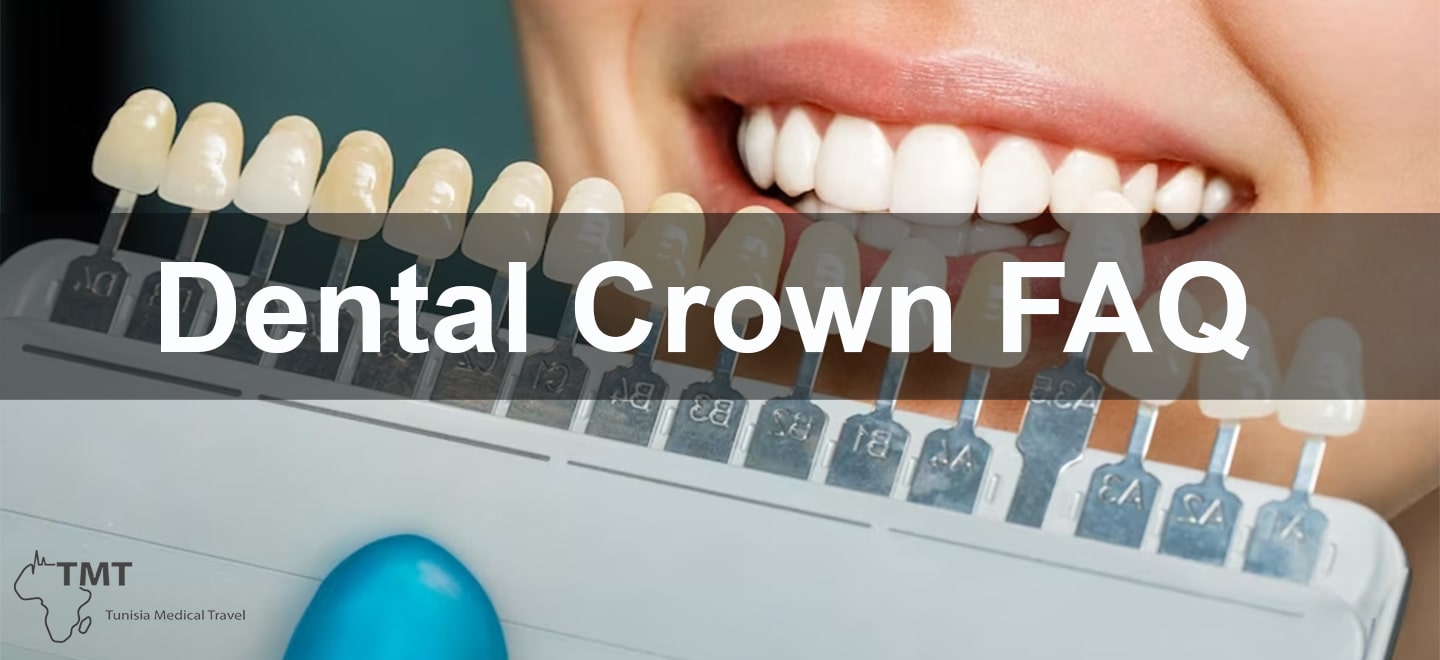Dental Crown FAQ
Dental Crown FAQ
Why having a dental crown made?
Dental crowns are commonly used to improve the appearance and strength of a damaged or decayed tooth.
Some of the reasons why a dental crown may be recommended include:
- To protect a weak tooth from breaking or to hold together parts of a cracked tooth ;
- To restore a tooth that has already been broken or worn down ;
- To cover and support a tooth with a large filling when there isn’t enough tooth remaining ;
- To cover misshapen or severely discolored teeth ;
- To cover a dental implant ;
- To make a cosmetic modification ;
Can a dental crown repair a chipped tooth?
Yes, a dental crown can repair a chipped tooth. A dental crown can also restore a tooth that has been broken or worn down. The dentist will remove any decay and shape the tooth to make room for the crown. The crown will then be placed over the tooth to restore its shape and function.
Can I use tooth whitening on dental crowns?
Tooth whitening can be used on dental crowns, but it’s important to keep in mind that the crowns may not whiten as much as the natural teeth. Porcelain and ceramic crowns will not change color with whitening products, and metal crowns are already a metallic color. If the patient wants to whiten their teeth, it’s better to whiten the natural teeth before getting a crown, or talk to the dentist about the best whitening options that suit the patient’s needs.
How do I clean and maintain my dental crown?
To clean and maintain your dental crown, it’s important to follow good oral hygiene practices, including:
- Brush your teeth twice a day with a soft-bristled toothbrush and fluoride toothpaste ;
- Floss at least once a day to remove plaque and food particles from around the crown and the surrounding teeth ;
- Rinse your mouth with an antiseptic mouthwash to help kill bacteria and freshen breath ;
- Avoid biting or chewing hard or sticky foods that can damage the crown or cause tooth sensitivity ;
Visit your dentist regularly for check-ups and professional cleanings.
Will my dental crown be visible?
The visibility of a dental crown depends on the location of the tooth and the type of material used for the crown. Porcelain and ceramic crowns can be matched to the color of the natural teeth and will be less visible. However, metal crowns may be more visible and noticeable, especially if they are located in the front of the mouth.
Are there any alternatives to a dental crown?
Alternatives to a dental crown include:
- Dental filling: If the tooth has a small cavity or decay, a filling may be used to repair the tooth instead of a crown ;
- Inlay or onlay: These are similar to fillings but are custom-made in a laboratory and are used for larger cavities or to repair the cusp of the tooth ;
- Dental Bridge: A dental bridge is an alternative for missing teeth, it’s a false tooth that is anchored to the natural teeth on either side of the gap ;
- Dental Implant: A dental implant is a surgical alternative, a small titanium post is placed into the jawbone and an abutment and a crown are placed on top ;
It’s important to consult with a dentist to determine the best option for your specific case. The dentist will examine the tooth and take into account factors such as the extent of the damage, the location of the tooth, and the patient’s budget;
Can a dental crown develop a cavity?
It’s possible for a dental crown to develop a cavity if proper oral hygiene is not maintained. The crown itself is not susceptible to decay, but the tooth structure under the crown can still develop a cavity. This is why it’s important to brush and floss regularly, and to attend regular check-ups with the dentist to ensure the tooth and crown are in good condition.
Can I repair a dental crown?
It depends on the extent of the damage to the dental crown. Minor chips or fractures can often be repaired by the dentist with composite resin or acrylic. However, if the damage is severe or the crown is loose or ill-fitting, it may need to be removed and replaced. It’s important to contact the dentist if the crown is damaged or causing any discomfort.
Can a dental crown stain?
Dental crowns can stain, but the extent of staining depends on the type of material used for the crown. Porcelain and ceramic crowns can stain over time, especially if the patient consumes staining agents such as tea, coffee, or tobacco. On the other hand, metal crowns are less likely to stain.

